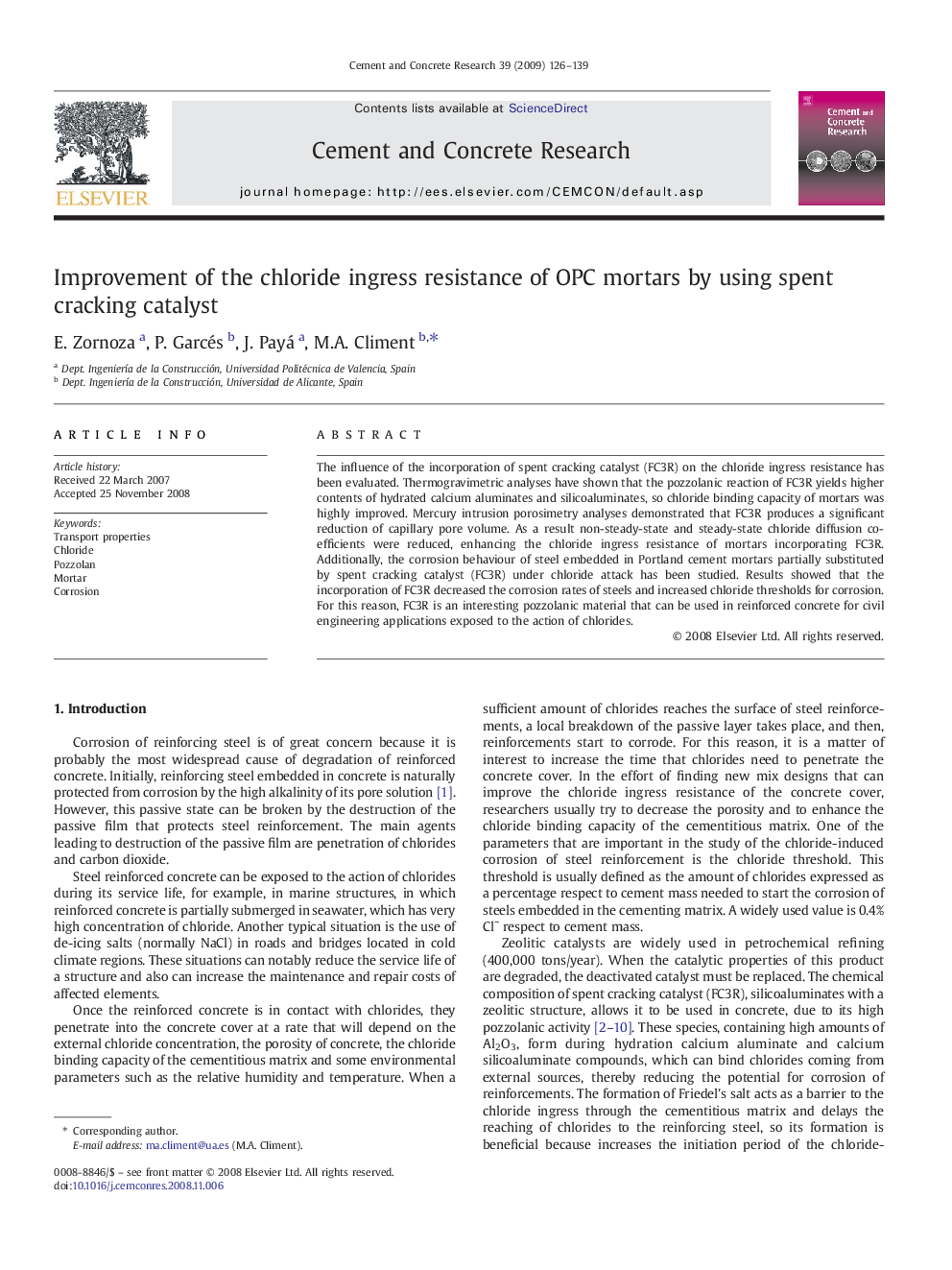| Article ID | Journal | Published Year | Pages | File Type |
|---|---|---|---|---|
| 1457359 | Cement and Concrete Research | 2009 | 14 Pages |
The influence of the incorporation of spent cracking catalyst (FC3R) on the chloride ingress resistance has been evaluated. Thermogravimetric analyses have shown that the pozzolanic reaction of FC3R yields higher contents of hydrated calcium aluminates and silicoaluminates, so chloride binding capacity of mortars was highly improved. Mercury intrusion porosimetry analyses demonstrated that FC3R produces a significant reduction of capillary pore volume. As a result non-steady-state and steady-state chloride diffusion coefficients were reduced, enhancing the chloride ingress resistance of mortars incorporating FC3R. Additionally, the corrosion behaviour of steel embedded in Portland cement mortars partially substituted by spent cracking catalyst (FC3R) under chloride attack has been studied. Results showed that the incorporation of FC3R decreased the corrosion rates of steels and increased chloride thresholds for corrosion. For this reason, FC3R is an interesting pozzolanic material that can be used in reinforced concrete for civil engineering applications exposed to the action of chlorides.
